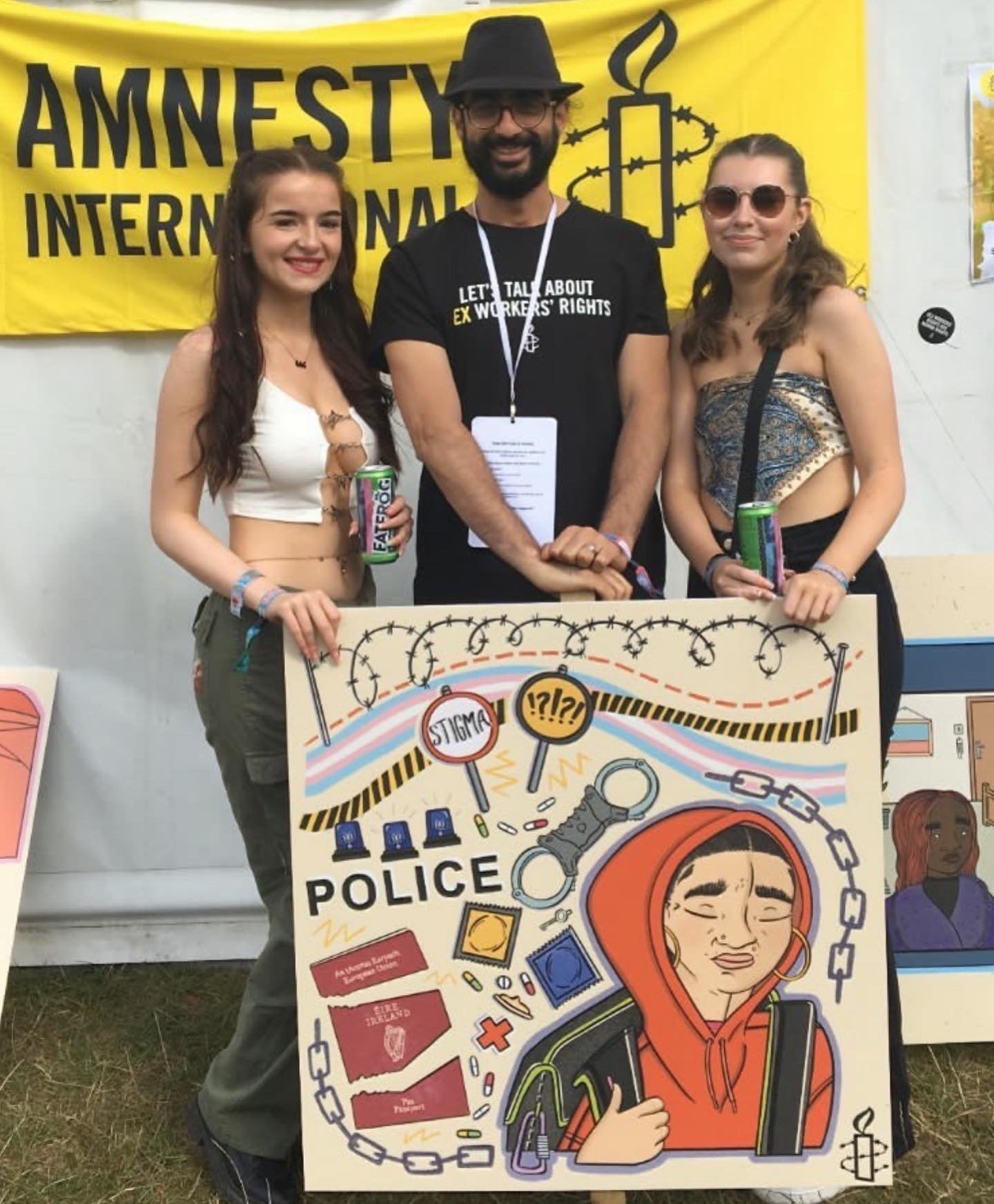amnesty ireland
these illustrations form the visual identity of amnesty ireland’s sex worker rights campaign. they are used in external literature promoting the campaign, on social media and at outreach events. the illustrations explore the key messages of the campaign and the nuances of the barriers faced by people who sell sex.
‘Sex workers have human rights. Yet, sex workers are being pushed to the margins and exposed to harsh daily realities, violence and injustice because of unfair laws that criminalise aspects of sex work, stigma, sexism, transphobia, racism, and harmful prejudices about who they are.’ — Amnesty Ireland
‘People engage in sex work for different, often intersecting reasons, their agency should be respected, and their rights protected. Decisions to sell sex can be influenced by situations of poverty and/or marginalization. Such situations do not necessarily undermine or negate a person’s consent. They may engage in sex work to put food on the table for their children, pay university fees, etc. Undocumented migrants may decide to sell sex as they do not have access to the formal economy. For others, sex work may be connected to drug addiction. In Ireland, sex workers have identified the ‘housing crisis’ (lack of availability and affordability of housing) as one of the key reasons why people do sex work.’ — Amnesty Ireland
‘The criminalisation of sex work puts sex workers at a greater risk of violence and violates their rights. For example, two or more sex workers working together indoors can be prosecuted and end up in jail under the brothel-keeping law. Sex workers face the impossible choice of working completely alone and thus being exposed to more danger or working with others at risk of being arrested and facing prosecution, a criminal record and fines or even prison sentences.’ — Amnesty Ireland
‘Sex workers have the right to be consulted on matters that affect their lives, including safety. Laws and policies that affect their lives are often decided without the participation of sex workers and ignoring sex workers’ experiences, putting them at greater risk. Sex workers are best positioned to identify solutions to increase their safety and the support they need, and they should have a seat at the table.’ — Amnesty Ireland
‘Despite the pervasive stigma towards people who engage in sex work, sex workers are standing up for their rights. Advocating for sex workers’ rights is advocating against gender-based violence, unfair immigration laws, and racism and it is advocating for labour rights and (gender) equality.’ — Amnesty Ireland










